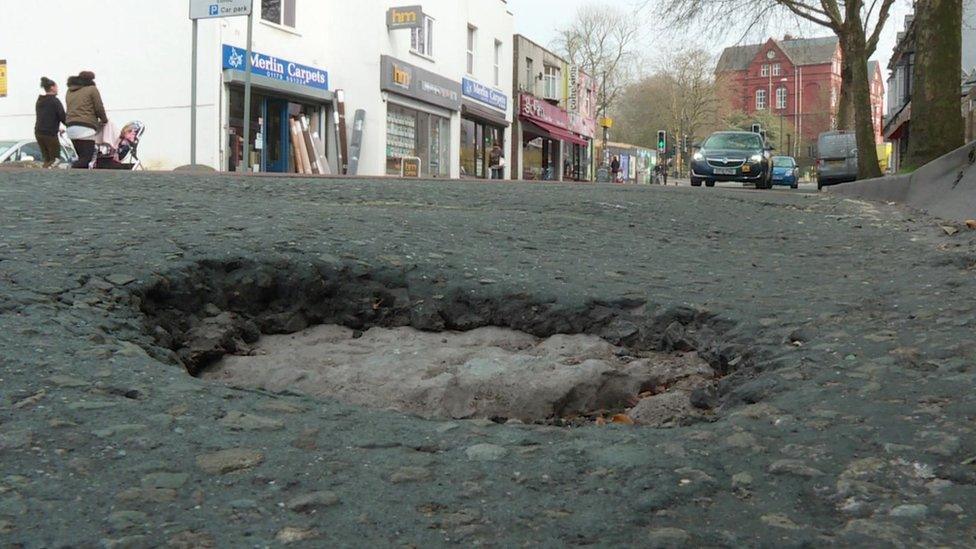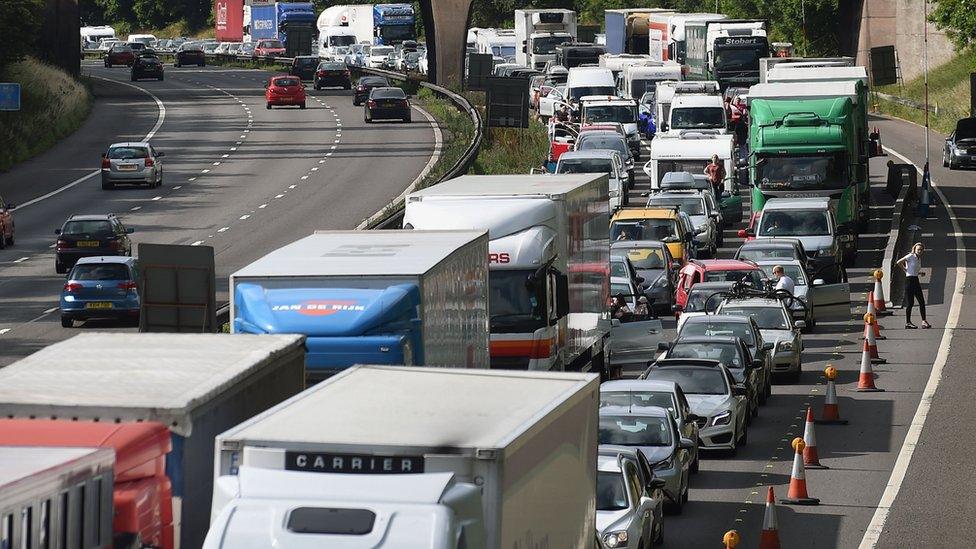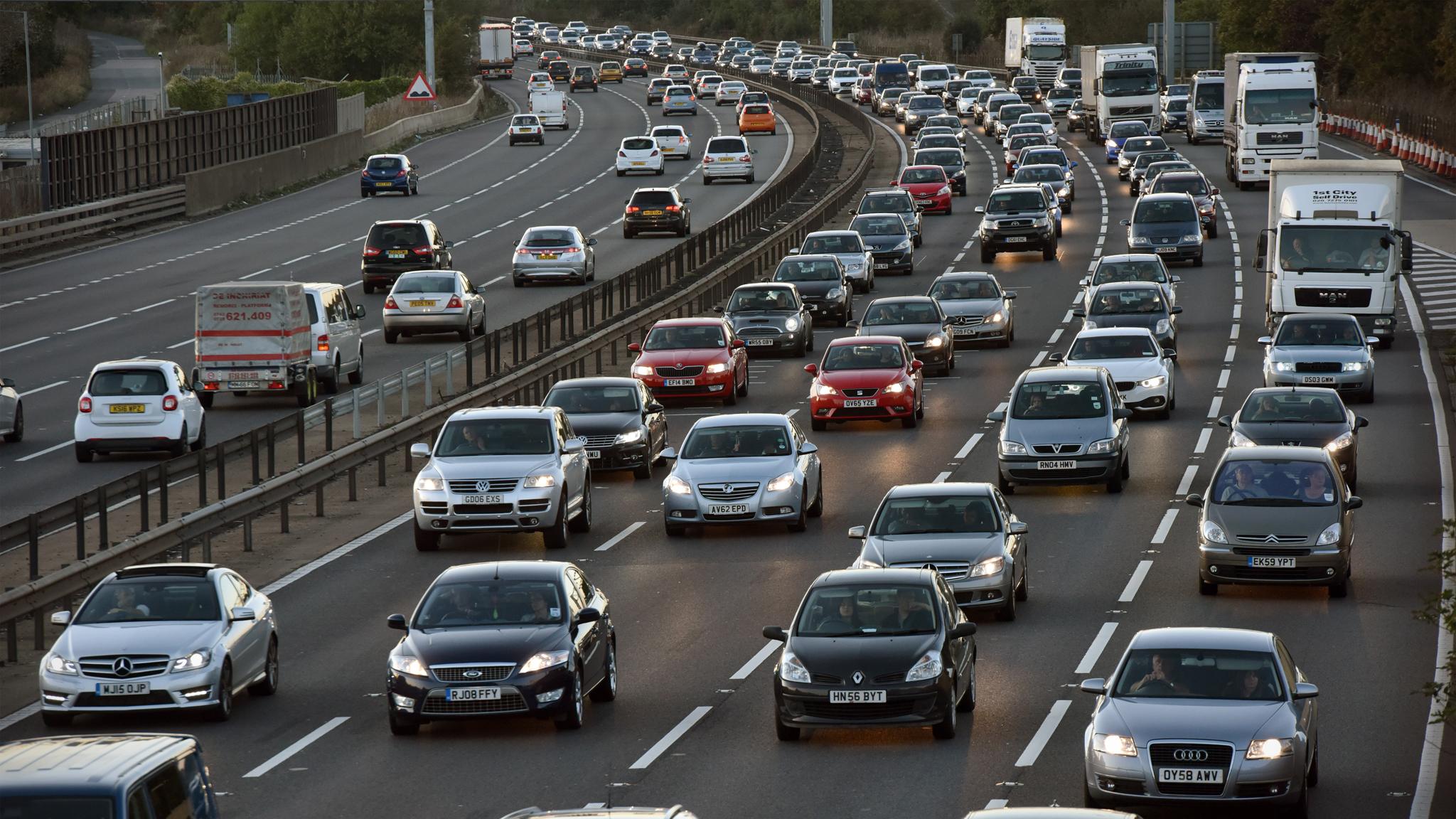Potholes 'the talk of the canteen'
- Published

"We talk about it all the time in the canteen, amongst drivers, our concerns about the safety and comfort for our customers," said Stephen Hopson, a Bristol bus driver.
He is one of many drivers worried about the state of local roads.
A new survey suggests potholes are an increasing a problem across the UK.
One in six roads across England and Wales is in such a bad state it must be repaired within the next five years, local authorities have said.
Mr Hopson told the BBC that while the local council does repair potholes, those repairs are not built to last.
"The potholes have got worse. After repair, it cracks up again, and we've got the pothole back," he said.
Roads in England and Wales are in need of billions of pounds' worth of repairs, a survey warns.
Some road users have had accidents caused by holes in the road.
Ellie in Chessington told the BBC that her car had been damaged by a pothole: "It had burst two of my tyres, and also dented the actual alloy wheel as well."
And Vanessa in Lowestoft said: "On Monday afternoon I had an accident on my bike where I hit a pothole and fell forward off my bike."
These experiences are backed up by the Annual Local Authority Road Maintenance survey (ALARM), which is produced by the Asphalt Industry Alliance (AIA).
It found that almost a fifth of roads were in "poor" condition.
Councils were almost £730m short of what was needed to keep the road network in "reasonable order", it said.
However, that is a smaller shortfall than the previous year.
The government is planning to pump £1.2bn into roads this year, including for repair and maintenance.
But authorities say it will take an average of 12 years and £12bn to bring the local network "up to scratch".
Councillor Judith Blake, from the Local Government Association, said: "It is becoming increasingly urgent to address the roads crisis we face as a nation.
"Our roads are deteriorating at a faster rate than can be repaired and it would take more than £12bn and be 2030 before we could bring them up to scratch and clear the current roads repair backlog."
Bristol bus driver Stephen Hopson says potholes are a safety concern.
'Tipping point'
The AIA says that roads need to be resurfaced every 10 to 20 years.
Only London comes close to this, with the capital's roads repaired every 23 years on average.
In England, roads are resurfaced every 55 years on average, while in Wales it is every 63 years.
Alan Mackenzie, chairman of the AIA, said the message from the survey was that "highway teams simply do not have enough money to arrest the terminal decline in the condition of our local roads and the network is not resilient enough to meet the challenges ahead".
He added that although the percentage of local roads in England and Wales classed as "good" rose from 48% to 53% last year, so did those in a poor condition, rising from 13% to 17%.
Mr Mackenzie said: "This is clearly not sustainable in the long-term and many highway engineers have warned of a tipping point ahead."
Last year, the government announced £1.1bn for road repairs for 2017 to 2018.
This was increased to £1.2bn in January to include money from the National Productivity Investment Fund and the Pothole Action Fund.
The Department for Transport said: "It is vital councils keep our roads in a good condition to deliver better journeys for drivers.
"We are providing councils more than £6bn over six years to maintain roads and repair potholes.
"On top of this, we announced last autumn an additional £1.1bn to upgrade and repair roads for communities across England."
- Published20 March 2017

- Published20 November 2016
